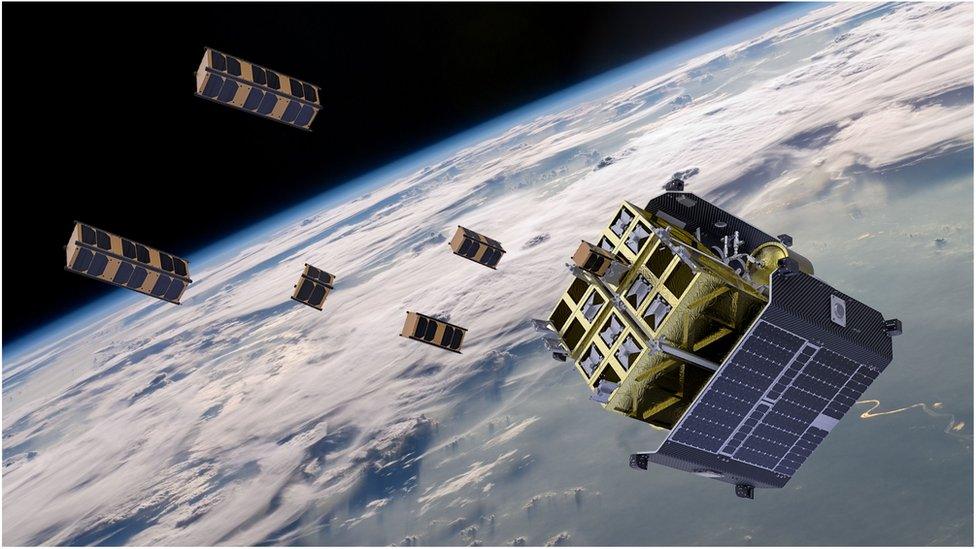UK Space Agency gives money to help protect satellites
- Published
- comments

One of the ideas is to have cameras that could look for nearby space debris
The UK Space Agency (UKSA) has given more than ÂŁ1m towards helping tracking satellites and space junk in orbit.
The money will be given to seven companies who are working on ways to develop new sensor technologies spot objects in space, working out what they are and track them.
They'll also develop algorithms to interpret the data they gather.
Finding better ways to monitor everything currently in orbit has become a big priority because, with more and more satellites being launched, there's growing concern about the possibility of collisions.
The space junk clean-up!
Added to that is around 900,000 objects - made up of old space equipment that no longer works, and junk like gloves and tool kits accidentally dropped by astronauts - that are still in orbit.
UK Space Agency is owned by the government, and is responsible for strengthening the UK's position in the space sector.
Artificial satellites are used for all sorts of purposes.
Satellites like the Hubble Space Telescope, the International Space Station, help scientists explore space
Communications satellites help us stay in touch with people all over the world, with some satellites used for mobile networks and to provide internet connections.
Weather satellites help us observe the Earth from space to help predict weather patterns.
Satellites are also in the Global Positioning System (GPS), which we use on maps on our phones.
Although some space junk is very small, only around 1cm, it could do a lot of damage and even completely destroy a spacecraft if there was a high speed collision.
It's hoped that the new research can create something like an automated traffic management system in the future, that will keep functioning satellites out of harm's way.
We've known for a long while that the space environment is getting more difficult, more cluttered
Jacob Geer from UKSA said: "Space surveillance and tracking is one of the key things we can do to keep safe those satellites we rely on now, and to make sure certain orbits don't become inaccessible for future generations because there's too much debris in them."
The Ministry of Defence and UKSA recently agreed to work together when it comes to space, with both having valuable assets in orbit that they want to protect.
UK government is now the part owner of the OneWeb satellite broadband company, which has launched 74 satellites and has plans to put up thousands more.
Related topics
- Published15 May 2020
- Published23 May 2019
- Published7 March 2018
